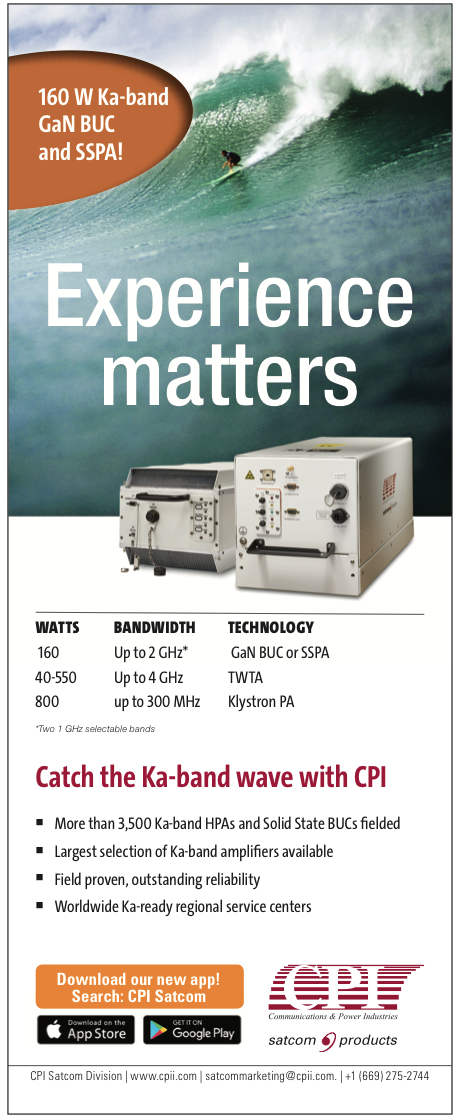Morris Shawn is the President and CEO of Roadpost Inc., a satellite communications provider. Since founding the company in 1991, he has been responsible for creating new business through emerging technologies, and overseeing the company’s strategic direction, key partnerships and product development.

As Roadpost’s President and CEO, Morris’s key mandate is to drive the company’s leadership in world-class satellite and remote communications solutions, exemplified by its development of the GeoPro remote workforce safety and communications solution, and its appointment as master Canadian distributor of the DeLorme inReach. He has helped grow Roadpost into Canada’s clear mobile satellite leader; indeed, Roadpost is among the top Iridium service providers on a global basis.
Morris’s telecom industry expertise spans almost a quarter century. Earlier in his career, he held Marketing and Strategic Planning positions with Bell Mobility, where he played an integral role in many of the company’s distribution development, product roadmap and long-term strategic planning initiatives. Morris holds an MBA from the University of Chicago and received his bachelor’s degree from the Wharton School of the University of Pennsylvania.
Catherine Melquist (CM): Morris, thank you for taking time for a Mobility News interview. I thoroughly enjoyed our recent catch up and I believe fellow MSUA members and Mobility News readers will enjoy learning about Roadpost and your perspectives on the satellite mobility business. Let’s start by focusing on Roadpost. What is the mission and focus of Roadpost and how would you describe the business you oversee today?
Morris Shawn (MS): Roadpost is focused on the land mobile segment of the MSS space, with a full range of Iridium, Inmarsat and Globalstar telephony, broadband and personal tracking solutions. We serve close to 45,000 subscribers under our Roadpost and BlueCosmo brands. Our fastest growing business is GeoPro, which is a cloud-based platform that helps enterprise customers manage their employee duty of care. GeoPro supports functions like tracking, check-in scheduling and management, and SOS alerting through a number of different satellite devices and mobile apps.
CM: What geographic and vertical markets does Roadpost prioritize and do you see new markets emerging?
MS: Our business is split fairly evenly between the U.S. and Canada. The Canadian market has been flat recently given depressed natural resource prices, and so we’ve seen more growth in the U.S. both organically and through our acquisitions of BlueCosmo and Satellite Phones Direct.
Our key verticals are the usual suspects that operate in remote areas, including government ministries, oil and gas, and utilities. We also are seeing a growing business continuity application amongst enterprises that are not traditional MSS users, driven by the increasing frequency of extreme weather events. And lower priced devices such as IsatPhone and especially personal tracking devices including SPOT and inReach have spurred an emerging consumer market.
CM: As change is always in motion and we’re amidst a sea of change in the satellite industry, how do you see things evolving on the distribution side of the land mobile business?
MS: We will clearly see more consolidation among service providers and resellers. Resellers in particular are one layer too far removed from the network operators and therefore have a higher cost of sales, which will be increasingly tough to sustain in the low growth handset and telephony market. That distribution layer is going to get disintermediated, except for those companies with highly specialized solutions or integration capabilities in, for example, the IoT space.
CM: What about on the customer side? How do you think today’s users experience satellite communications?
MS: If we’re talking about legacy products and solutions, too many land mobile users today don’t experience satellite communications. Terminal and usage costs are very high and so MSS is relegated to emergency use only, sort of an insurance product that people buy because they have to but hope they don’t have to use.
This seems crazy given the explosive growth in penetration and usage that we’ve seen in the mobile phone world, which suggests that land mobile usage would explode if the affordability was there. In fact, that’s exactly what we’ve started to see with many IoT applications and the emerging personal tracking segment.
CM: As MSUA focuses on satellite mobility innovation and market development, what do you believe to be the most important product innovations emerging in the industry and why?
MS: Iridium’s launch of its NEXT constellation is obviously a huge industry milestone, and Certus will bring lots of new terminals and services. The initial Certus 350 products aren’t really targeting our land mobile markets, but that will change once we see more portable and cost-effective lower bandwidth terminals and services in a couple of years. Where we don’t see much innovation is on handsets, where the functionality and expectations gap between satellite phones and what’s available on the mobile side keeps growing.

At the other end of the bandwidth spectrum, the personal tracking market is another area where we expect more innovation. We see additional high-volume markets and opportunities for low-priced, low-bandwidth devices, and Roadpost certainly intends to participate.
CM: Do you believe the innovations will help simplify the sale of satellite connectivity or add additional complexity?
MS: That’s a great question. The industry traditionally has a very strong technical orientation in how it presents itself and its products to the marketplace. There is not enough focus on what some marketers call the “whole product”, which is the core product itself surrounded by the layers that make it so much more valuable to the customer.
For example, Roadpost was intimately involved with the inReach, having participated in its initial development and later as master Canadian distributor until Garmin acquired DeLorme. It’s a great example of a whole product that is more than a device; it’s easy to activate, the monthly service plans offer lots of value and are the same no matter who you buy the device from, you can manage your subscription online, and it has a mobile app and online portal and even product ambassadors that are super focused on the inReach’s core outdoor adventure market. Of course, “whole product” for a low-priced, consumer-oriented device is different than for a more specialized solution sale, where the whole product may extend beyond satellite and into a solution that spans connectivity technologies, but the concept is the same even if the ingredients aren’t. In the end, it’s not the products themselves that will determine customer engagement, it will be what the distributors, VARs and VAMs build around those products, and how easy they make it for customers to integrate those products into their business workflows.
CM: What about your existing markets and users. Does the promise of new broadband LEO systems and low-cost next gen terminals complicate purchase decisions that need to be made today?
MS: Not yet — while there has been much industry chatter around OneWeb and the other new LEOs, at the customer level these programs and products still seem undefined and distant. Customers who do dig in find these systems may not offer the expected mobility and portability and are instead targeting more fixed and transportable applications.
CM: We used to talk a lot about the market convergence of MSS and FSS spawning the new “mobility” market. Today, it seems there’s an even larger convergence occurring between satellite and wireless services with some service providers positioning themselves as being both satellite and cellular capable. Do you see this dynamic taking place and are users expecting service providers to be able to support multiple wireless technologies?
MS: Yes, we certainly see that in some of our markets. One example is GeoPro, our work alone safety platform. Although we started with satellite devices, we now have customers that use the platform to monitor workers across technologies. A big box retailer might have an overnight maintenance worker who needs WiFi-enabled indoor location functionality on a cellular device, as well as transport truck drivers who are traversing areas outside of mobile coverage, and therefore need a satellite device. That customer wants to manage their duty of care on a single platform, regardless of the specific employee’s connectivity and functionality requirements. What we’re not seeing much of, at least in our space, is demand for actual devices that are dual-mode, as opposed to platforms.
CM: Does this dynamic and other industry trends present any new or
unique challenges?
MS: Yes. All of us that sell MSS need to educate ourselves and think outside of the satellite box if we want to identify new opportunities and grow our businesses. First, we need to understand and articulate how our pieces fit within the larger operating, business process and network contexts for our customers. And second, we must recognize how customers’ smartphone and online experiences have influenced expectations of satellite products and service providers – ease of provisioning and deployment, simplicity of use, always-on connectivity and self-serve account management and support.
CM: Morris, you’ve worked in the satellite industry for many years. How did you get involved in satellite and what’s your career path been?
MS: I worked for Bell Cellular in the early days of that industry and left to become a specialty dealer of theirs. We had phone rental booths at airports, like a car rental counter. We started renting GSM phones to outbound overseas travelers, and when Iridium first launched with their idea that this would be a phone for the global business traveler, it was a natural product extension. We all know how that turned out, but we stuck with Iridium through their relaunch and repositioning, and as our original business faded into oblivion, we went all-in on MSS. Ironically, things are now coming full circle, and GeoPro in particular is bringing us back into the cellular space.
CM:
Is there a particular aspect of the business you find most engaging?
MS:
I really enjoy the product roadmap and strategic planning pieces, and I’m definitely a numbers guy. Structuring and negotiating our acquisitions of BlueCosmo and Satellite Phones Direct has been a new and engaging challenge for me. And I’m fortunate to have an awesome management and front-line team at Roadpost that can both contribute to our strategy and make it happen at the operational level. They know from experience what makes my eyes glaze over, and usually save me from it.
www.msua.org
www.roadpost.com
This interview is courtesy of MSUA and is republished with the organization’s permission.
President of the Mobile Satellite Users Association, Catherine spearheads the group’s mission to promote mobility market development and mobility innovation. With more than 25 corporate and small business members representing all levels of the satellite value chain as well as end-users, MSUA collaborates with conference organizers around the world to facilitate panels and keynote speakers that decipher mobility market dynamics including: growth opportunities, strategic partnership, barriers to progress, application aspirations, adjacent market influences and more.
Catherine Melquist is a strategic marketer with more than two decades of experience developing marketing and public relations strategies for global companies in the satellite and space-based market.

Catherine is the principal strategist at CAM & Company, a boutique marketing practice offering a cost-effective, ready-to-go alternative to resourcing an in-house marketing team or contracting with a traditional marketing firm. Ideal for start-ups, companies in transition, or established businesses looking to augment their staff, CAM & Co helps companies navigate the market to achieve brand awareness, strategic outreach and revenue success. CAM & Co employs a carefully selected network of professionals with satellite and aerospace expertise and shape-shifts them into teams to meet the unique needs of each client.


